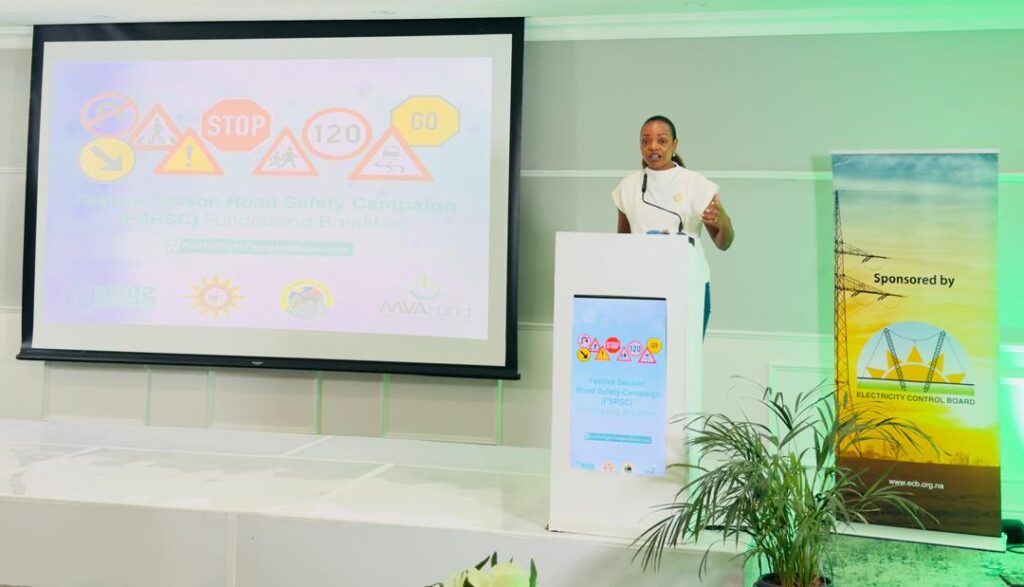
Staff Reporter
THE Motor Vehicle Accident (MVA) Fund pays an average of N$250 million per year on medical expenses related to road crashes, as well as capacitating public hospitals with necessary equipment, as the country grapples with a high rate of road accidents, with over 400 fatalities recorded by mid-October 2025.
This was revealed by MVA Fund CEO, Rosalia Martins-Hausiku, in her remarks delivered at the 10th Annual Road Safety Conference held in Swakopmund. The MVA Fund is a social safety net created by the government as a catchment for persons injured on the roads and dependents of those who unfortunately succumb to injuries resulting from road crashes.
“Thousands more are injured, some permanently disabled. These are not mere statistics; they represent real people — Namibians whose dreams and aspirations are cut short. Year to date, we have lost 13.8 lives per 100,000 population — about 12% more than the 11.3 lives in 2024. We have recorded 145.2 injuries per 100,000, a slight decline from 147.4 last year, but in 2023 it was lower at 133.7. The Erongo region remains second to the Khomas region,” Martins-Hausiku said.
PICTURED: MVA Fund CEO, Rosalia Martins-Hausiku. Photo: MVA Fund
She added that speeding, drunk driving, fatigue, and pedestrian negligence remain the leading causes of these preventable tragedies.
“At least 72% of these crashes involve a moment of poor judgment that can alter lives forever. We cannot, and must not, accept this as normal. Our nation’s vision under NDP6 is clear — to create a Namibia that is progressive, more inclusive, and resilient, where every citizen can participate fully in our country’s growth and prosperity,” Martins-Hausiku said.
She added that in aligning the MVA Fund’s operations to NDP6, the Fund has tailored its strategies to the pillars of Economic Growth, Transformation and Resilience, Human Development and Community Resilience, and Good Governance and Effective Service Delivery through Enhanced Road Safety Interventions.
“We continue to ensure survivors receive quality emergency response, medical treatment, and rehabilitation to regain their independence and restore dignity,” Martins-Hausiku said.
Further to this, she added that the Fund has embraced digitisation and service efficiency to simplify access to claims and ensure faster, more transparent service delivery. “This is one of the changes in our proposed legislative amendments.
“This will further enable us to improve service delivery for those who are unbanked in terms of benefit awards. We continue to leverage collaborations with communities, schools, corporates, and media partners to build a national culture of responsible road use.
“Finally, I wish to highlight our focus on defensive driving training and trauma training of doctors, nurses, and paramedics, as well as specialisation for doctors in different fields, to ensure that when all else fails, we create a forgiving and responsive environment. One of our corporate values is ‘We value lives.’ Our collective vision is to see a Namibia where families arrive home safely, where the economy is not burdened by preventable injuries, and where compassion drives policy and action,” Martins-Hausiku said.










